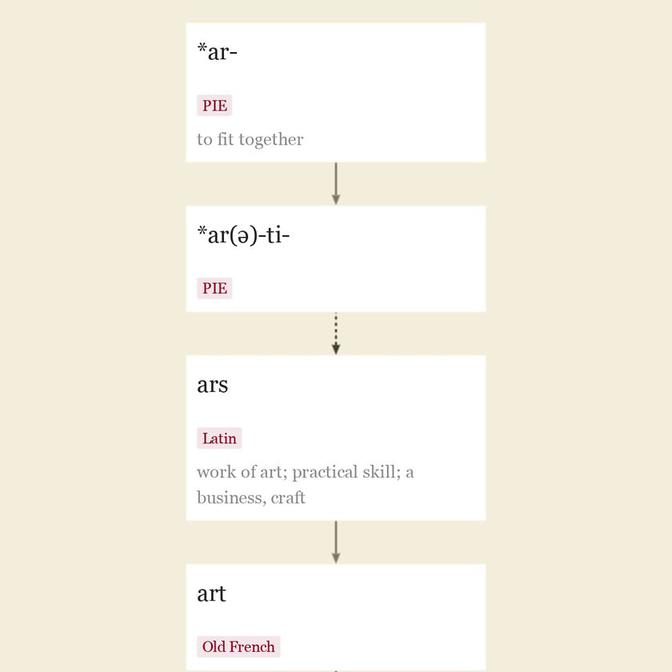artwork n.
also art-work, "
Entries linking to artwork

early 13c., "
In Middle English usually with a sense of "
In science you must not talk before you know. In art you must not talk before you do. In literature you must not talk before you think. [Ruskin, "The Eagle's Nest," 1872]
Supreme art is a traditional statement of certain heroic and religious truths, passed on from age to age, modified by individual genius, but never abandoned. The revolt of individualism came because the tradition had become degraded, or rather because a spurious copy had been accepted in its stead. [William Butler Yeats, journal, 1909]
Expression art for art's sake (1824) translates French l'art pour l'art. First record of art critic is from 1847. Arts and crafts "
Old English weorc, worc "
The meaning "
Work of art attested by 1774 as "
Proverbial expression many hands make light work is from c. 1300. To have (one's) work cut out for one is from 1610s; to have it prepared and prescribed, hence, to have all one can handle. Work in progress is from 1930 in a general sense, earlier as a specific term in accountancy and parliamentary procedure.
Work is less boring than amusing oneself. [Baudelaire, "Mon Coeur mis a nu," 1862]
updated on September 25, 2022